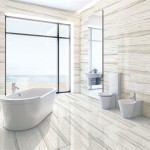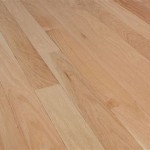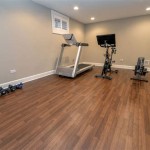Can You Use Vinyl Flooring Outdoors?
Vinyl flooring has become increasingly popular for indoor use due to its durability, water resistance, and affordability. However, you may wonder if it is suitable for outdoor applications as well. Let's explore the factors to consider when using vinyl flooring outdoors.
Types of Vinyl Flooring
There are two main types of vinyl flooring: luxury vinyl plank (LVP) and vinyl sheet flooring. LVP comes in planks that resemble wood, while vinyl sheet flooring is available in large rolls.
For outdoor use, LVP is generally preferred due to its higher durability and water resistance compared to sheet vinyl.
Outdoor Use Considerations
Here are some key considerations when determining whether vinyl flooring is suitable for your outdoor space:
1. Water Resistance:
Vinyl flooring is inherently water-resistant, making it an ideal option for outdoor areas exposed to rain and moisture. However, prolonged submersion in water can damage the flooring.
2. UV Resistance:
Standard vinyl flooring is not highly UV-resistant, meaning prolonged exposure to direct sunlight can cause fading and discoloration. If you plan to install vinyl flooring in a sunny area, choose a product specifically designed for outdoor use with UV resistance.
3. Temperature Fluctuations:
Vinyl flooring can expand and contract with temperature changes. In extreme climates with significant temperature fluctuations, this expansion and contraction can lead to buckling or gaps in the flooring.
4. Subfloor Preparation:
Outdoor subfloors must be properly prepared before installing vinyl flooring. The subfloor should be level, smooth, dry, and free from debris.
5. Installation:
Vinyl flooring installation outdoors requires special attention to the edges and seams. Proper sealing and adhesive application are crucial to prevent water penetration and damage.
Pros of Using Vinyl Flooring Outdoors
* **Durability:** Vinyl flooring is highly durable and can withstand foot traffic, pets, and outdoor elements. * **Water Resistance:** Vinyl flooring is water-resistant, making it suitable for areas exposed to moisture. * **Affordability:** Vinyl flooring is relatively affordable compared to other outdoor flooring options. * **Low Maintenance:** Vinyl flooring is easy to clean and maintain, requiring only regular sweeping and mopping.Cons of Using Vinyl Flooring Outdoors
* **UV Damage:** Standard vinyl flooring can fade or discolor over time if exposed to prolonged sunlight. * **Temperature Fluctuations:** Vinyl flooring can expand and contract with temperature changes, which can lead to damage in extreme climates. * **Installation Complexity:** Installing vinyl flooring outdoors requires careful preparation and attention to detail, which may increase the overall cost.Conclusion
While vinyl flooring offers several advantages for indoor use, its suitability for outdoor applications depends on the specific type of vinyl flooring and the outdoor conditions it will be exposed to. By carefully considering the factors discussed above, you can determine whether vinyl flooring is the right choice for your outdoor space.

Can You Put Vinyl Flooring On A Deck

G Floor Blog How To Use Vinyl Flooring Outdoors

D C Fix Simple To Install Outdoor Flooring

Outdoor Vinyl Flooring Non Fading

Can You Use Vinyl Flooring For Outdoor Patio

Patio Flooring Tufdek Waterproof Vinyl Deck Solutions

Outdoor Vinyl Floor Covering

Outdoor Vinyl Flooring All The Pros And None Of Cons

The Best Outdoor Vinyl Flooring

Interlocking Vinyl Plank Flooring Installed Outdoors








